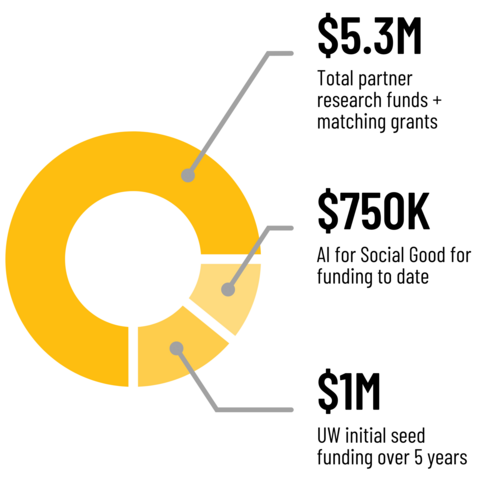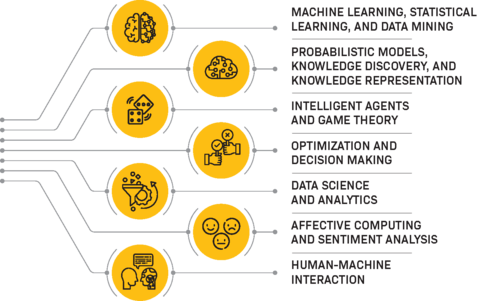
Since 2018, Waterloo.AI has served as the University of Waterloo’s hub for cutting-edge research and collaboration in artificial intelligence and data science. We bring together faculty, researchers, students, and industry partners to tackle real-world challenges in areas such as disease detection, language understanding, emotional intelligence, and autonomous navigation.
Our Vision
-
To advance the responsible use of data science and artificial intelligence to enhance the prosperity and well-being of humankind.
Our Mission
-
Partner with stakeholders to solve real-world problems through the responsible deployment of data science and AI.
-
Lead globally in both applied and foundational AI and data science research.
-
Broaden participation and strengthen workforce talent through education, training, and outreach.
-
Drive adoption and commercialization of AI and data science innovations.
Our projects are building tomorrow’s intelligent systems today, by translating industry requirements into deployable, real-time embedded AI. In years to come, we expect this investment to yield profound dividends for the economic prosperity and quality of life of people all around the world. And we are just getting started.



APPLIED AI
Leveraging the underlying science, operational research collaborates with industry to apply AI to specific problems and opportunities. We aim to develop lightweight, compact AI with minimal computing power and energy requirements, suitable for a host of stand-alone applications.


FOUNDATIONAL AI
Foundational research allows us to identify – and subsequently overcome – shortcomings in existing artificial intelligence (AI) approaches. This not only strengthens the scientific base of the field but is also critical to further advancing real-world AI applications.

